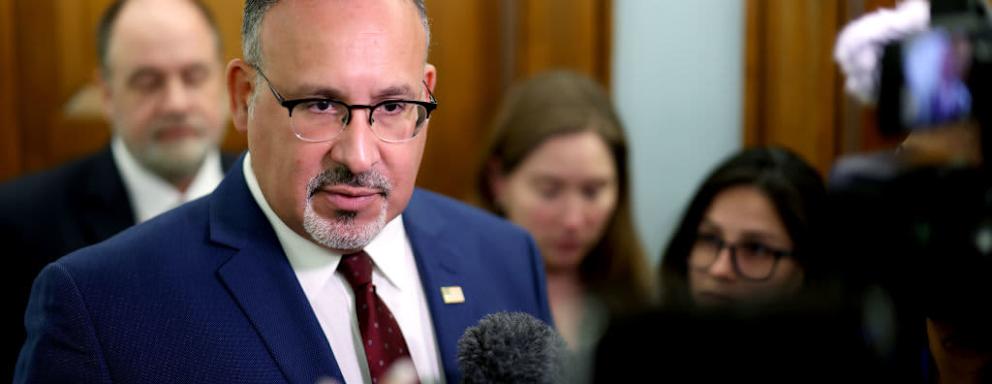The Next FAFSA Will Be Launched in Phases. Here’s What Students Need to Know.
 Credit: Image Credit: Bloomberg / Getty Images
Credit: Image Credit: Bloomberg / Getty Images- This year’s FAFSA launched three months later than usual, creating a downturn in form submissions.
- Now, Department of Education officials are hoping to avoid a similar outcome with a phased rollout of the 2025-26 FAFSA.
- Next year’s FAFSA will be available for some students at the start of October and be available to all students on or before Dec. 1.
Next year’s FAFSA will be available to some students on Oct. 1, with a steady ramp-up through Dec. 1.
The Department of Education (ED) announced Wednesday that it will institute a rolling launch of the 2025-26 Free Application for Federal Student Aid (FAFSA) form extending to the end of this year.
The form typically is released to all students on Oct. 1, but the most recent FAFSA wasn’t made available until Dec. 30, 2023. This delay contributed to a significant downturn in the number of filed FAFSA applications.
The launch of the 2024-25 FAFSA has been plagued by a litany of other issues after ED “simplified” the application in response to the 2020 FAFSA Simplification Act.
Advocates seemingly celebrated ED’s more calculated approach to launching next year’s FAFSA.
“Ideally, we would have a fully functional, well-tested FAFSA opening on Oct. 1,” Beth Maglione, interim president and CEO of the National Association of Student Financial Aid Administrators (NASFAA), said in a statement.
“But given where we are in the process, and the challenges that have plagued this year’s rollout, we would rather wait until Dec. 1 to allow time for the necessary testing to ensure a functional system when ED launches the 2025-26 FAFSA.”
ED said it will start with “hundreds” of students being able to access the FAFSA on Oct. 1. It will eventually expand to “tens of thousands” over the ensuing weeks. The form will be available to all students “on or before” Dec. 1.
The department will use the phased rollout to identify and resolve any issues.
Students who file the FAFSA during the testing phase won’t have to resubmit once the FAFSA is live for everyone.
“Following a challenging 2024-25 FAFSA cycle, the department listened carefully to the input of students, families, and higher education institutions, made substantial changes to leadership and operations at Federal Student Aid, and is taking a new approach this year that will significantly improve the FAFSA experience,” ED Secretary Miguel Cardona said in a statement.
Catherine Brown, senior director of policy and advocacy at the National College Attainment Network (NCAN), similarly celebrated the department’s plan. However, she acknowledged that 50% of FAFSAs traditionally are filed by the end of each calendar year, so a Dec. 1 nationwide launch still is not ideal.
“The trade-off between functionality and timeliness is one that NCAN has wrestled with and discussed at length with our partners and members,” Brown said in a statement. “Ultimately, we concluded that it’s imperative that [Federal Student Aid] conduct the necessary testing to ensure a reliable, functional FAFSA — even if doing so requires delaying the release date.”
As of July 26, FAFSA completions are down 10.4% compared to the same point last year, according to NCAN. The downturn is most pronounced in Alabama (-16.7%), West Virginia (-16.7%), and Maine (-14.6%).